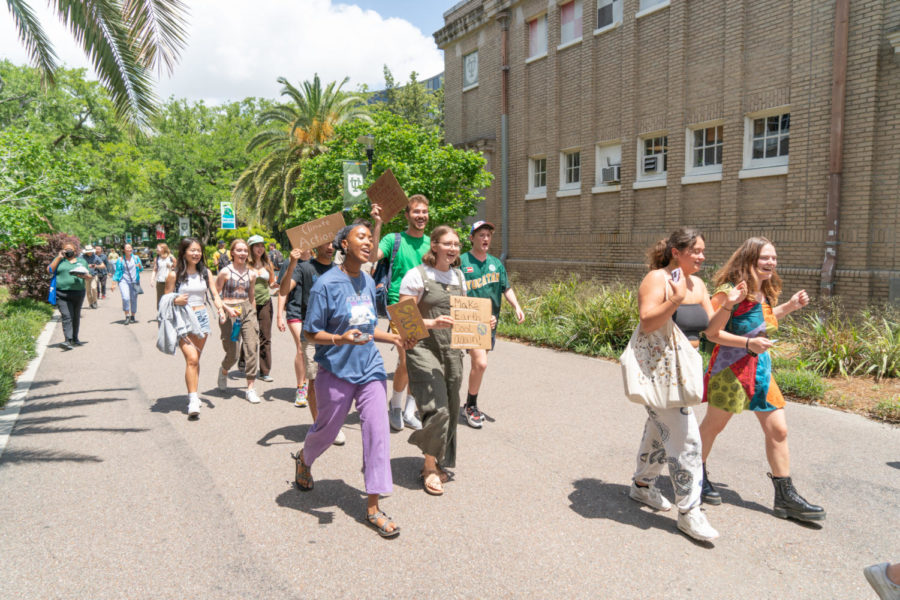Students protest Tulane fossil fuel dependency
April 27, 2022

On Friday, April 22, Tulane University students gathered in an Earth Day march and teach-in to protest Tulane’s investments in fossil fuels. The protest continues a long history of students calling for the university to invest solely in clean energy.
Protestors were affiliated with various groups, such as the Divestment Committee, Sunrise Tulane and College Democrats.
About 15 students from the three clubs gathered on the steps of Gibson Hall to watch speakers and push Tulane to end its investment in the fossil fuel industry.
Sahil Inaganti ‘23, an undergraduate in the Divestment Committee, said he believes that Tulane’s history in a state ravaged by climate change means the university is charged with a greater responsibility to sustainability.
“To invest in fossil fuels is unacceptable morally,” Inaganti said.
Louisiana Bucket Brigade Director Anne Rolfes spoke at the teach-in. A Tulane alumna, Rolfes leads the nonprofit to “create an informed, healthy society that hastens the transition from fossil fuels.”
Sharon Lavigne, founder of RISE St. James, an environmental justice organization in New Orleans, spoke after Rolfes. At an earlier presentation with the Divestment Committee on April 5, Lavigne talked about her experience with pollution in her neighborhood.
“The citizens had to step up and take the fight over because our public officials are not,” Lavigne said. Lavigne grew up in St. James Parish, where Cancer Alley sits. Cancer Alley extends along the Mississippi River from New Orleans to Baton Rouge and is filled with petrochemical plants that have polluted the area, causing dangerous living situations for its residents.
The march was the latest in multiple efforts by students to end Tulane’s fossil fuel ties. In 2013, the Divestment Committee was founded by a group of undergraduates and started a petition to end fossil fuel investments at Tulane. In 2014, the club spoke at a national panel of college climate activists for 350.org. In 2015, 70 students gathered outside President Mike Fitts’s office for the same reason.
But the event focused on the present.
“Last semester we had Hurricane Ida cancel classes in person for an entire month,” Inaganti said. “For a school to be on the frontlines of climate change and to be investing in an industry responsible for these severe weather events is unacceptable.”









Leave a Comment